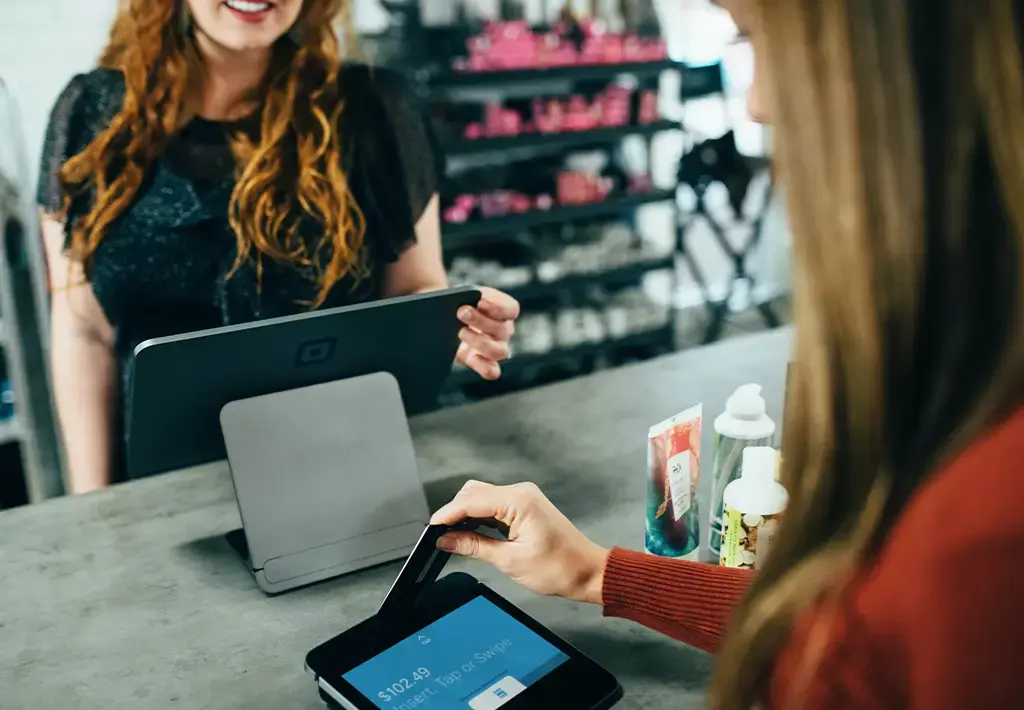Personalisation has emerged as the go-to element for fueling customer loyalty and satisfaction in retail. Savvy retailers who embrace digital technology’s potential to create personalised experiences are not just outselling their rivals in the present; they’re building more durable customer bases and storing up future success.
Personalisation is a boon for customer engagement. But to be effective, it has to be seamless. Today’s consumer doesn’t expect any distinction between online and offline touchpoints. She wants to be recognised as an individual with particular tastes, whether she’s in your store or in your online checkout funnel.
So, how can retailers unify the customer experience without breaking the bank? Let’s explore what’s currently afoot.
The changing retail landscape
The e-commerce boom has totally transformed consumers’ expectations. Data analytics allowed retailers to serve bespoke offers and recommendations to every passing customer.
That expectation soon spilled over into the ‘real’ world. Now, over half of brands are investing in technologies that let them sell anywhere.
But what does personalisation in retail look like when it needs to function in both the digital and physical worlds?
Bringing tech into the store
Some top retail brands are already showing the way. Nike’s “Nike by You” customisation programme allows customers to modify their footwear by selecting their preferred colours and materials and adding personalised messages.
In select Nike stores, customers can use interactive touchscreens to design their shoes and see a digital representation before purchasing. And in 2023, the brand unveiled an in-store augmented reality (AR) exhibit in Paris, so customers could pop a white shoe into a device and watch it get customised on a whim.
Another compelling example of personalisation in retail is Macy’s innovative use of a mobile app. The app provides customers with personalised offers and recommendations based on their unique preferences and purchase history. Additionally, it offers a convenient scanning feature that gives customers access to detailed product information, check availability and read reviews while making in-store decisions. This seamless integration of digital technology enhances the overall shopping experience and empowers customers with up-to-date information at their fingertips.
The importance of digital signage
Retail personalisation also involves the integration of improved digital signage. Retailers leverage these dynamic displays to communicate relevant and timely information to customers, such as product availability, promotions and special offers. By keeping customers well-informed throughout their shopping journey, retailers enhance customer satisfaction, drive engagement and ultimately boost sales.
Omnichannel strategies for personalisation
Traditional checkout processes are evolving. Conventional register and checkout areas are giving way to more flexible and open designs that empower customers to navigate the store freely. This shift doesn’t just improve the overall shopping experience. Shoppers can now browse at their own leisure and make purchases from anywhere within the store, eliminating the need for traditional checkout counters and long queues.
The benefits of personalised experiences extend to both retailers and customers. For retailers, personalisation plays a pivotal role in increasing customer engagement and satisfaction, ultimately driving higher conversion rates. By adopting clientelling techniques, retailers build individualised relationships with customers through personalised recommendations, tailored assistance and regular communication. These strategies create a sense of exclusivity and make customers feel valued, fostering loyalty and encouraging repeat purchases.
The integration of an omnichannel strategy, which seamlessly integrates online and offline touchpoints, further amplifies the impact of personalisation, ensuring a cohesive and satisfying shopping experience across all channels.
Utilising technology for personalised customer journeys
Capturing data on customers’ browsing behaviour, purchase history, demographics and preferences gives retailers a deep understanding of their target audience and is foundational for personalised experiences.
CRM systems: the cornerstone of personalisation
Customer relationship management (CRM) systems are invaluable for managing customer data and driving personalisation efforts. With these systems, retailers can centralise customer information, track customer interactions and deliver personalised communications across multiple channels. CRM integration streamlines the personalisation process and ensures a consistent and cohesive experience across all customer touchpoints.
Segmentation strategies
Retailers use segmentation to better understand customer behaviour and group buyers into distinct demographic groups. By understanding these segments, retailers can create better-targeted marketing campaigns and provide customised content, promotions and offers that are more likely to capture customers’ attention and drive conversion.
Website personalisation
Personalisation can also be implemented on retailers’ websites. By leveraging customer data, retailers can dynamically display content that aligns with individual preferences. For example, retailers can showcase personalised product recommendations, offer relevant promotions or customise the website layout based on customers’ browsing history to enhance the online shopping experience and increase the likelihood of conversion.
Personalisation in physical stores
But personalisation in physical stores is more important than ever. Services such as personal shopper assistance (where dedicated staff members provide tailored recommendations based on individual preferences and needs) and interactive displays are becoming popular. Imagine stepping into a store where mirrors magically transform into personal stylists, helping you try on different outfits virtually. That’s what smart mirrors like the one at Tommy Hilfiger’s London store do.
Balancing personalisation and ethical considerations
As retailers embrace personalisation to enhance customer experiences, it is crucial to balance it with ethical considerations such as data privacy concerns and potential breaches. Ensuring transparency and obtaining customer consent in data usage are key principles that retailers must uphold.
In an era of heightened customer awareness, retailers must prioritise robust data protection measures and adherence to privacy regulations. Implementing secure data storage, encryption protocols and anonymisation techniques safeguards customer information and lessens the risk of security issues that can have reputational and financial consequences.
Building trust through transparency
Just like in any relationship, trust is crucial. Retailers must have a solid foundation of trust with their customers by being open and transparent about how they collect and use customer data. It’s all about putting the power in customers’ hands and respecting their privacy preferences.
Retailers should seek explicit customer consent to collect and process their data for personalisation purposes. Consent should be freely given, specific and informed, with customers understanding how their data will be utilised and for what purposes. Clear opt-in and opt-out mechanisms empower customers to exercise control over their data and the personalisation they receive. This ensures that personalisation is a consensual and mutually beneficial process.
The power of personalisation in retail
In this competitive retail landscape, customers now expect personalised experiences that cater to their unique needs and preferences. It’s not enough to remember a regular customer’s name. This new breed of personalisation requires a deep understanding of their preferences, and the ability to anticipate their needs and deliver tailored recommendations so they get excited about shopping.
Furthermore, it’s a value that also helps stores understand customers’ preferences and purchase history to offer targeted promotions and upsell opportunities, maximising their revenue potential. It creates positive brand associations, leading to positive word-of-mouth referrals and brand advocacy.
The wave of new retail technology empowers retailers to harvest crucial customer insights and data. This invaluable intel grants them an in-depth understanding of their target audience, enabling the fine-tuning of marketing strategies and optimisation of product ranges.
Retailers ready to transform their operations and meet the evolving demands of customers can find the right team of retail experts and insights with Endava. Reach out to our team to learn more about how to leverage technology solutions for the ultimate personalised customer journey.



